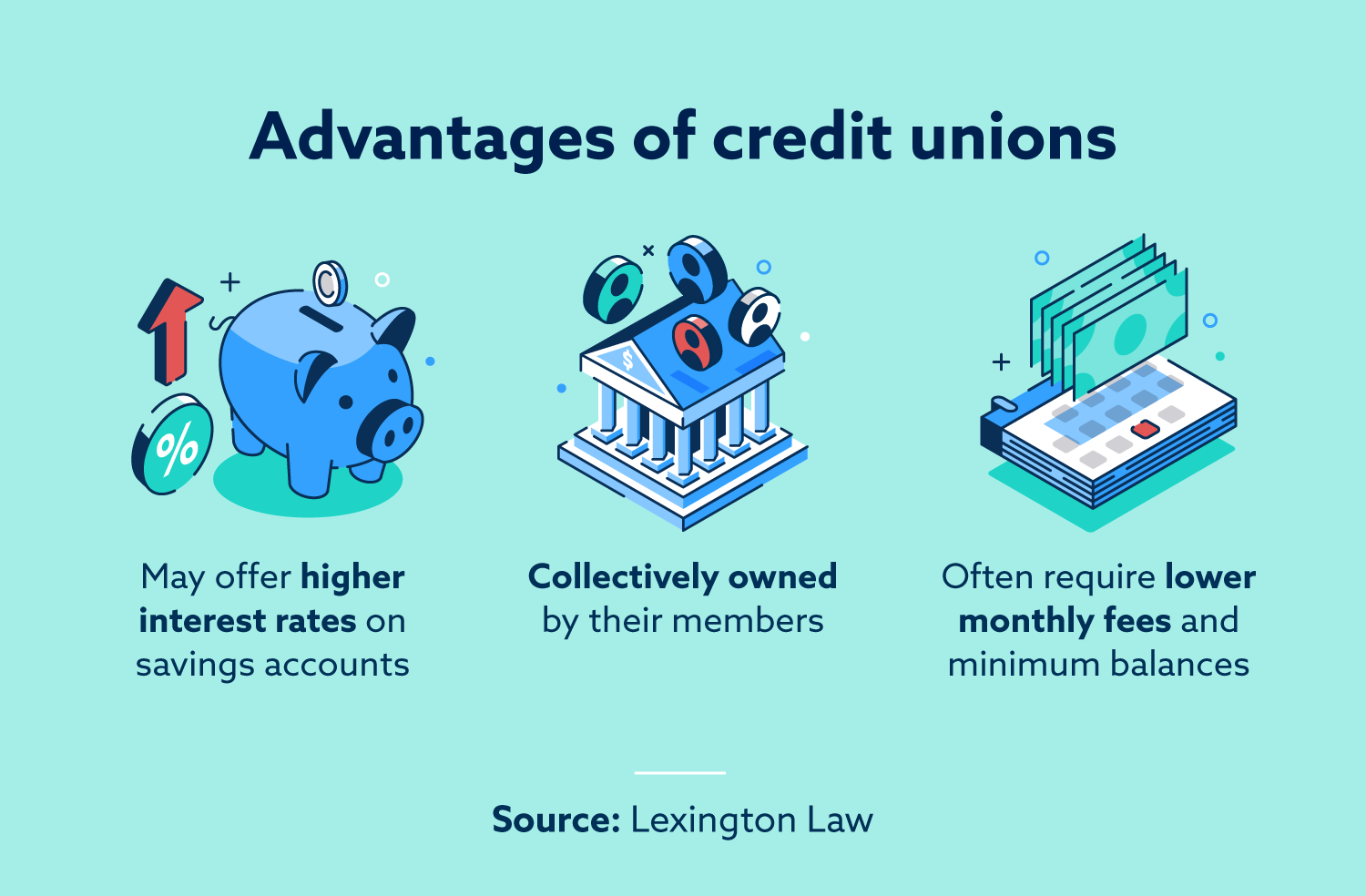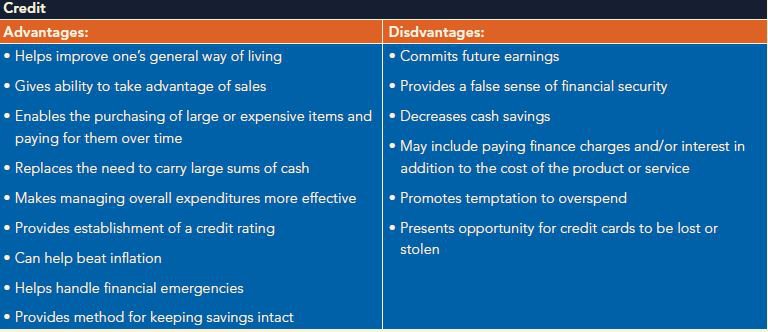Credit Unions in Wyoming: Comprehensive Financial Solutions and Participant Conveniences
Credit Unions in Wyoming: Comprehensive Financial Solutions and Participant Conveniences
Blog Article
The Ultimate Overview to Comprehending Cooperative Credit Union

Credit history unions stand as unique financial entities, rooted in concepts of mutual support and member-driven procedures. As we navigate via the ins and outs of credit history unions, an insightful journey awaits to shed light on these member-focused organizations and just how they differ from conventional banks.
What Are Cooperative Credit Union?
Cooperative credit union are member-owned economic organizations that supply a variety of banking solutions to their participants. Unlike conventional financial institutions, credit history unions run as not-for-profit companies, meaning their main emphasis gets on serving their members instead than optimizing profits. Participants of a cooperative credit union generally share a common bond, such as functioning for the very same employer, coming from the same area, or belonging to the very same company.
Among the crucial advantages of lending institution is that they frequently offer higher rates of interest on cost savings accounts and lower rate of interest on fundings compared to financial institutions. Federal Credit Union. This is because credit report unions are structured to profit their participants directly, enabling them to pass on their profits in the type of much better prices and less costs. In addition, credit report unions are known for their individualized customer support, as they focus on developing relationships with their participants to recognize their one-of-a-kind monetary requirements and objectives
Background and Evolution of Lending Institution
The roots of member-owned monetary cooperatives, known today as lending institution, trace back to a time when neighborhoods looked for alternatives to typical banking institutions. The concept of cooperative credit union originated in the 19th century in Europe, with Friedrich Wilhelm Raiffeisen typically credited as the pioneer of the cooperative banking movement. Raiffeisen established the very first acknowledged cooperative credit union in Germany in the mid-1800s, highlighting community assistance and self-help concepts.
The evolution of lending institution proceeded in The United States and Canada, where Alphonse Desjardins developed the first cooperative credit union in Canada in 1900. Soon after, in 1909, the initial united state cooperative credit union was formed in New Hampshire by a team of Franco-American immigrants. These very early cooperative credit union operated on the fundamental concepts of shared help, autonomous control, and member ownership.
With time, credit report unions have actually expanded in appeal worldwide because of their not-for-profit structure, concentrate on serving members, and using competitive monetary services and products. Today, credit history unions play a vital function in the economic market, offering community-oriented and accessible financial options for companies and people alike.

Membership and Qualification Criteria
Membership at a lending institution is usually restricted to individuals satisfying specific eligibility criteria based on the establishment's beginning concepts and regulatory demands. These standards typically include elements such as geographical location, work status, subscription in particular organizations, or association with particular teams. Lending institution are recognized for their community-oriented approach, which is shown in their membership requirements. Hybrid Line of Credit. Some credit history unions may just serve people who live or work in a certain location, while others may be customized to workers of a particular firm or participants of a certain association.
In addition, lending institution are structured as not-for-profit companies, suggesting that their main goal is to offer their members instead of create profits for investors. This concentrate on participant service usually equates right into more personalized attention, lower costs, and competitive rates of interest on financial savings and financings accounts. By fulfilling the eligibility requirements and ending up being a participant of a credit score union, people can access a variety of financial product or services customized to their specific requirements.
Providers and Products Used
One of the crucial elements that sets lending institution apart is the diverse variety of financial solutions and web items they use to their members. Lending institution usually supply traditional banking services such as savings and inspecting accounts, finances, and charge card. Participants can likewise profit from investment solutions, consisting of pension and economic planning assistance. Several lending institution offer competitive rate of interest prices on interest-bearing accounts and financings, along with reduced costs contrasted to typical banks.
Moreover, debt unions usually provide hassle-free online and mobile financial options for participants to easily handle their finances. They might use advantages such as common branching, permitting participants to access their accounts at other lending institution throughout the country. Some cooperative credit union also offer insurance coverage items like vehicle, home, and life insurance policy to assist participants secure their assets and loved ones.

Benefits of Banking With Cooperative Credit Union
When taking into consideration financial establishments, discovering the benefits of banking with lending institution discloses unique benefits for participants seeking individualized service and competitive prices. One considerable benefit of lending institution is their concentrate on individualized client service. Unlike big banks, credit rating unions are member-owned and prioritize building strong connections with their participants. This indicates that credit history union personnel typically have a much deeper understanding of their participants' financial needs and can use customized remedies to help them attain their objectives. Additionally, credit unions are recognized for providing affordable rates of interest on cost savings and car loans accounts. Due to the fact that they are not-for-profit organizations, credit rating unions can typically supply reduced loan rates, higher savings prices, and lower charges contrasted to traditional financial institutions. This can result in substantial price financial savings for members gradually. On the whole, financial with a lending institution can give a more personalized, cost-effective, and member-centric economic experience.
Conclusion
Finally, cooperative credit union stick out as member-owned monetary establishments that focus on serving their participants over making best use of revenues. With origins dating back to 19th century Europe, lending institution follow principles of mutual aid and member ownership. They use a variety of financial product and services, consisting of typical banking find more solutions, financial investment choices, and competitive rates of interest. Membership eligibility criteria specify and show a community-oriented strategy, supplying tailored customer care and a member-centric monetary you can find out more experience.
Credit scores unions are member-owned economic institutions that use a variety of banking solutions to their members. The concept of credit history unions stem in the 19th century in Europe, with Friedrich Wilhelm Raiffeisen usually attributed as the pioneer of the participating financial motion.The development of credit scores unions proceeded in North America, where Alphonse Desjardins established the first credit score union in Canada in 1900. Debt unions usually supply conventional financial services such as financial savings and inspecting accounts, finances, and credit rating cards.When considering economic establishments, discovering the benefits of banking with credit history unions discloses distinct benefits for participants seeking customized solution and affordable rates.
Report this page